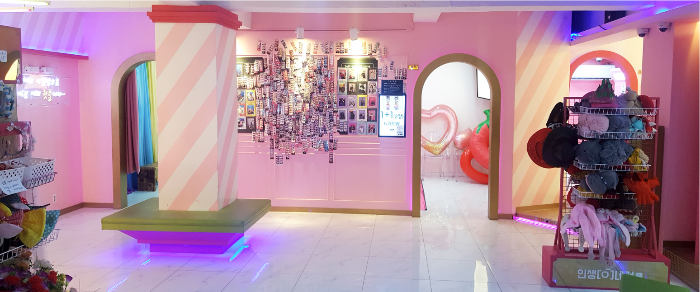China's alleged Korean trademark piracy surges during COVID-19
China's ruling over trademark disputes are based on the first-to-file principle
By Feb 07, 2023 (Gmt+09:00)
LG Chem to sell water filter business to Glenwood PE for $692 million


Kyobo Life poised to buy Japan’s SBI Group-owned savings bank


KT&G eyes overseas M&A after rejecting activist fund's offer


StockX in merger talks with Naver’s online reseller Kream


Mirae Asset to be named Korea Post’s core real estate fund operator



South Korean companies have witnessed a sharp increase in alleged trademark piracy in China over the past few years, as COVID-19 curbed their overseas expansion, according to industry officials on Tuesday.
But their legal fight over the alleged trademark infringement did not always prove successful. Chinese courts tended to rule in favor of local companies in many cases, under the country’s strict first-to-file principle.
As an example, Life4Cuts, an instant photo service company in Korea, tried to venture into China last year, but found a local company has already been running the same service under a similar company logo.
Also, several other Chinese companies have registered the translated Chinese name of Life4Cuts.
“Because of their trademark infringement, we had to revise our strategies to enter the Chinese market from the scratch,” said an official of the Korean startup.
It runs photo booths and gives the QR codes of instant photos so that its customers can upload them on SNS accounts.

Life4Cuts had spent a great deal of money to fight against trademark infringement in China.
But a lower court in China rejected the lawsuit filed by the little-known Korean brand.
“There is a lack of legal systems in China that allow companies to react sternly to ill-intentioned trademark piracy,” said Um Myeong-yong, a patent attorney at patent firm Dahai.
“It was a painful lesson,” said the company official. “We have registered our trademark in Taiwan and other countries ahead of others.”
It is aiming to enter China in the first half of this year.

A sandwich brand EGG DROP suffered a similar setback.
A Chinese company had registered the trademark of EGG.DROP, putting a dot between the two words.
Despite winning a legal case over the trademark piracy, EGG DROP faced a hurdle to build a presence there because the Chinese competitor had already opened multiple outlets.
Leading companies are hit by trademark infringement in China as well.
Sulbing, a desert café chain, and bakery brand Paris Baguette engaged in legal battle with Chinese firms over alleged trademark piracy.
As for Paris Baguette, a Chinese company in 2017 registered a logo with the same pronunciation but different Chinese characters from the bakery chain. It also had demanded the Korean bakery brand pay about $1.5 million to use its original trademark in China.
After a five-year battle, Paris Baguette finally won the case.
Patent experts said that the pandemic gave a great opportunity for Chinese companies to illegally copy Korean franchises’ flagship brands, which had to suspend their foray into China.
They advise Korean startups and small and medium-sized enterprises register trademarks in China, before launching services.
According to the Korean Intellectual Property Office, the number of China’s alleged infringement of South Korean trademarks soared nearly 100% to 2,922 cases in 2021, versus 1,486 in 2019 before the pandemic struck.
Write to Yong-Hoon Kwon at fact@hankyung.com
Yeonhee Kim edited this article
-
 Bio & PharmaCelltrion wins trial against Regeneron for US patent lawsuit over biosimilar
Bio & PharmaCelltrion wins trial against Regeneron for US patent lawsuit over biosimilarNov 18, 2022 (Gmt+09:00)
1 Min read -
 ElectronicsKorean LED maker marks 100th victory in global patent wars
ElectronicsKorean LED maker marks 100th victory in global patent warsNov 04, 2022 (Gmt+09:00)
1 Min read -
 Artificial intelligenceS.Korea rejects patent claims for AI-invented products
Artificial intelligenceS.Korea rejects patent claims for AI-invented productsOct 04, 2022 (Gmt+09:00)
1 Min read -
 Patent disputesSamsung sued by ex-patent chief over IP infringement
Patent disputesSamsung sued by ex-patent chief over IP infringementJan 10, 2022 (Gmt+09:00)
3 Min read


